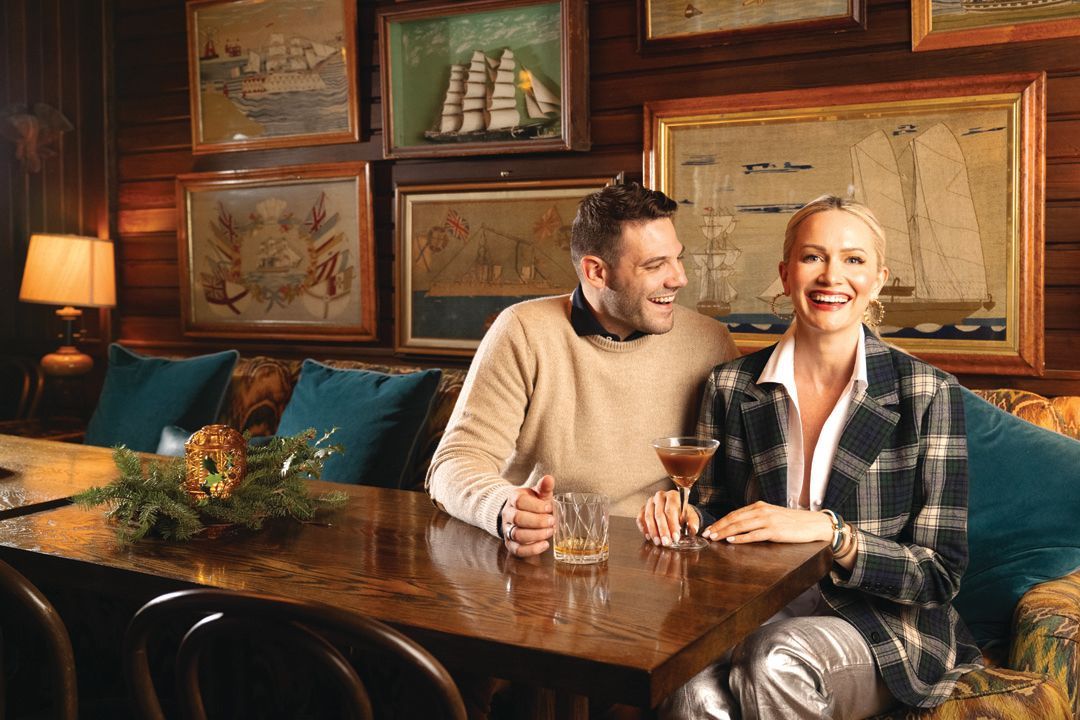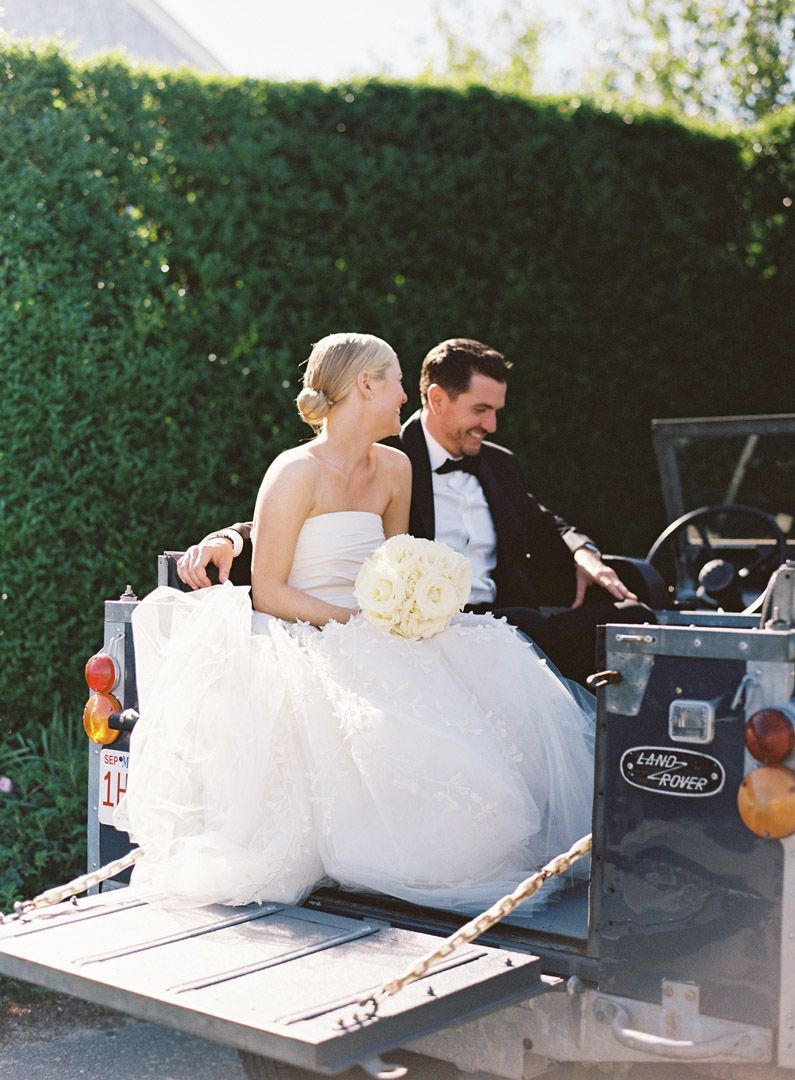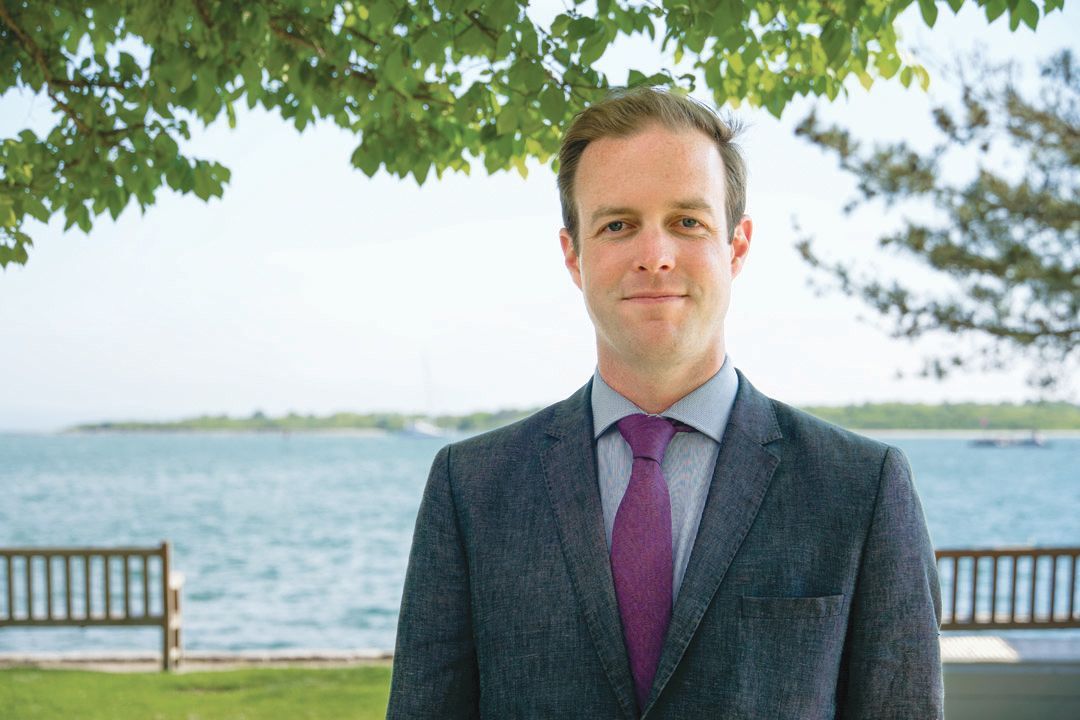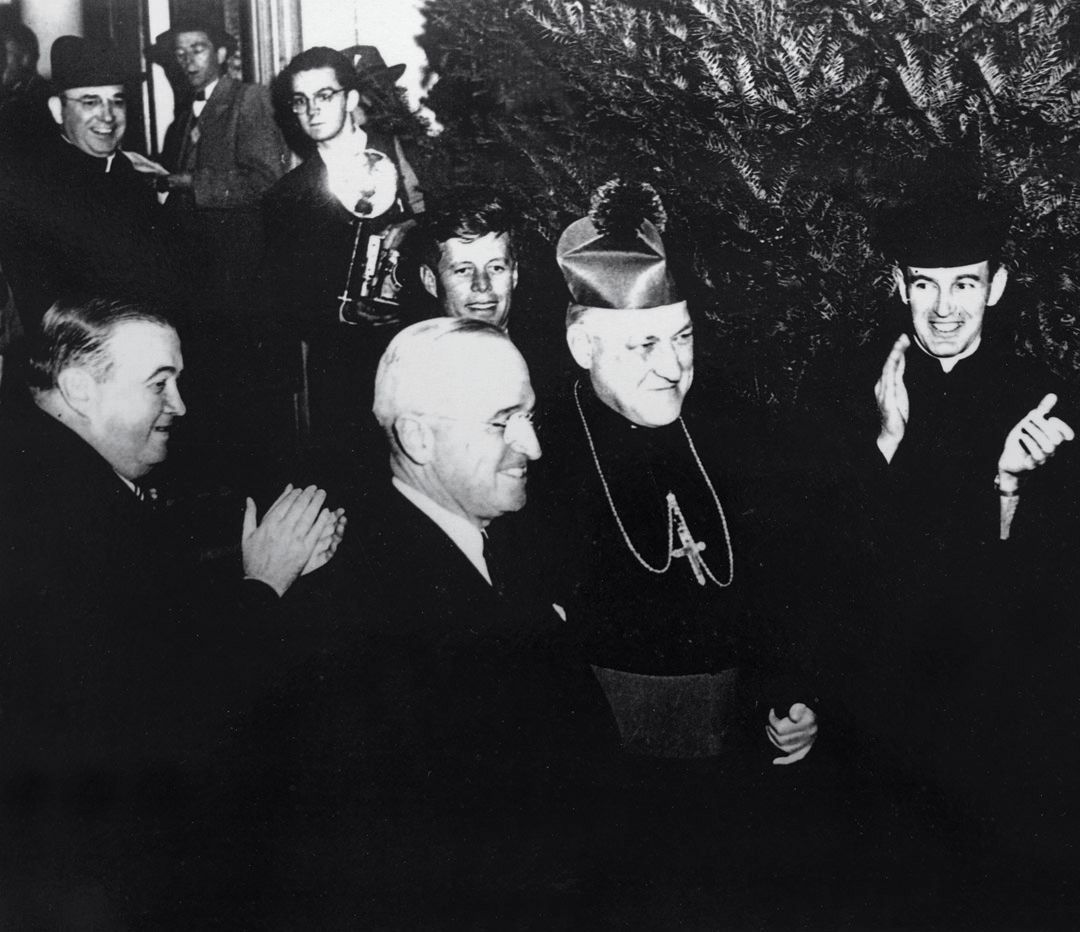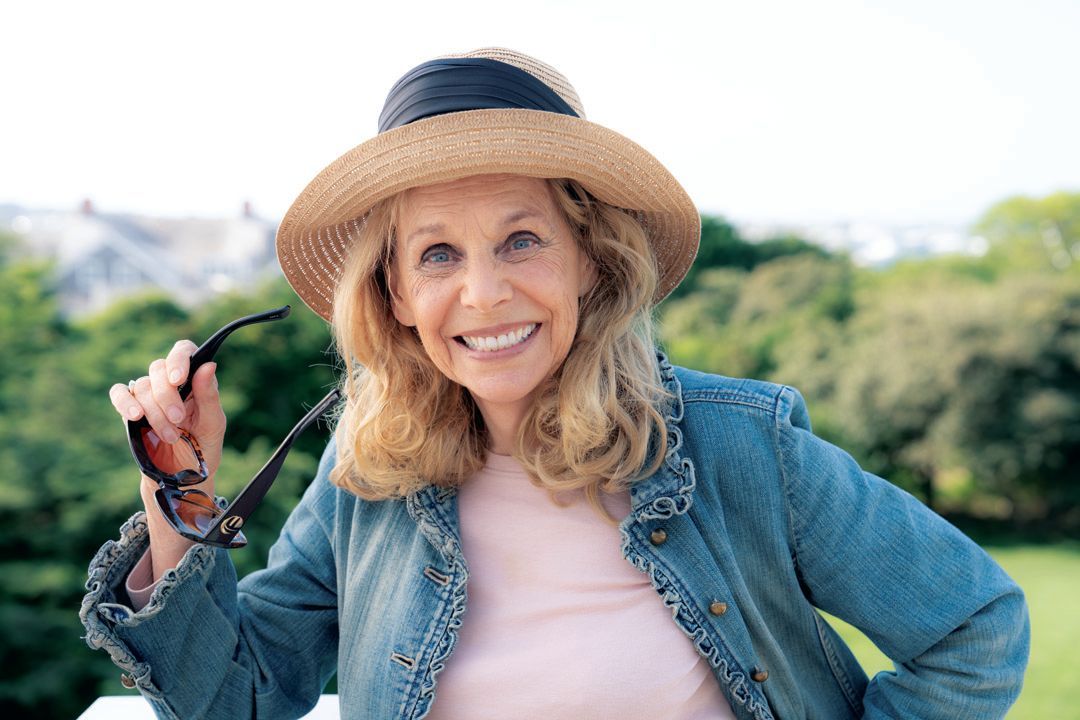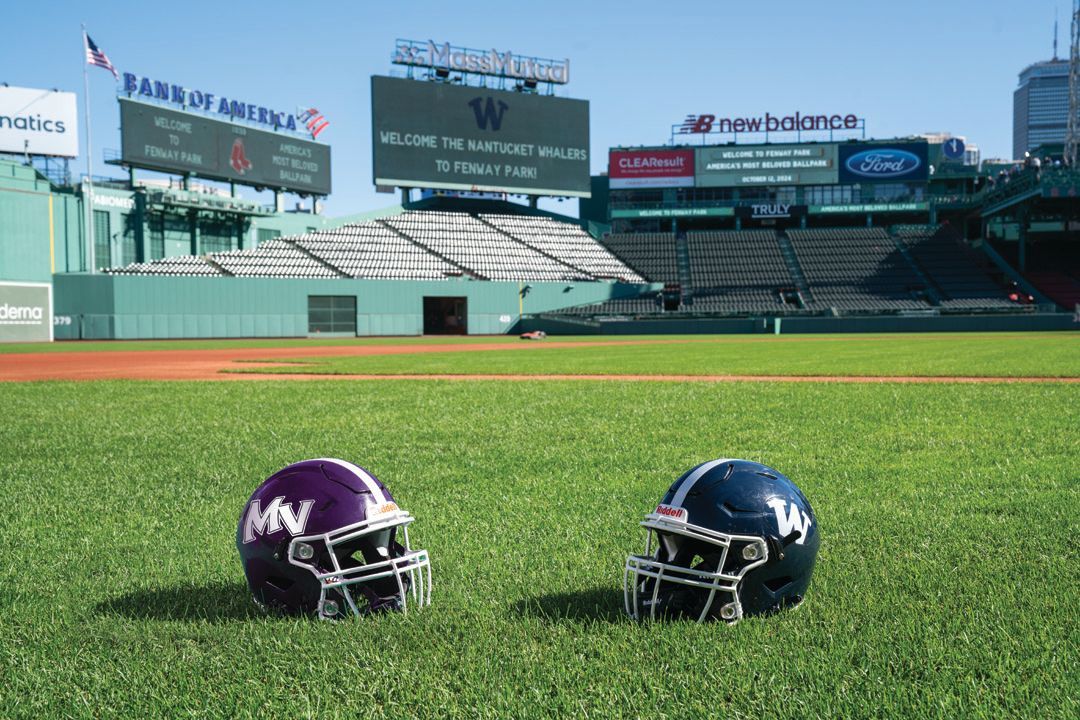Game On
Jason Garrett discusses his life in football, from the Giants to the Cowboys and beyond.
Interview by Bruce A. Percelay
Photography by Kit Noble
From his early days playing for the New York Giants to leading the Dallas Cowboys as head coach and transitioning into a successful broadcasting career, summer resident Jason Garrett continues his football journey as a studio analyst for NBC Sports’ Football Night in America. Garrett won three division titles during his time as head coach of the Cowboys from 2010 to 2019 and holds the record for the second-most wins by a head coach in team history. We sat down with Garrett to discuss the NFL, the significance of sports in social movements, and personal anecdotes that stood out in his career.
How did you find Nantucket?
I was playing for the Giants in 2000, and a good friend of ours was broadcasting a game at Boston College. He looked at our schedule, saw that we had a bye week, and said, “Why don’t you come up to Nantucket.” So, my wife, Brill, and I came up, and we were just completely amazed by it. We got on a boat to Tuckernuck; we did a picnic, had a great dinner at this long table, and we just became smitten by it. Finally, in 2017, we bought our house. It was the best decision we’ve ever made in our lives. We love it.
You went to Princeton. Was there a different balance between academics and sports at Princeton than there would have been at an Ohio State, for example?
I loved the balance that Princeton had. It was competitive football. There was a true commitment there and certainly a tremendous commitment during the season, but the expectation was that you’re a student-athlete, and you had to perform well in the classroom. They have high standards academically and athletically, and to me, it brought the best out in us.
Can you talk about your senior thesis?
I did my thesis on the Black Power movement in sports in 1968 in Mexico City at the Olympics. Essentially, the idea was the sports phase of the civil rights movement—the inequities that Black athletes felt in college and elsewhere at that time. They weren’t treated the same way. … So I went through the entire history of that, and it’s pretty interesting because, as I was the head coach of the Cowboys, this idea of using sports as a platform to convey social change certainly came upon us with kneeling on the sidelines. And it was something that I actually talked to our team about—the fact that I had done this research many years ago, and how these are the issues and these might be the consequences of your actions.

Did this enable you to have a better relationship with your players?
It was one of the most challenging experiences I had as a head coach because you have these two competing ideas. Some of the greatest moments I’ve had as an athlete or as a coach are standing on the sidelines before a big game with the flag being raised and listening to the national anthem. It’s emotional, and it’s something that I always was very grateful to be a part of. We, as a team, took that very seriously well before all of these issues came to the surface. And then this came up, and I thought it was important for me, as one of the leaders in our organization, to recognize the roots of this issue.
Give us a couple of impactful highlights that you walked away with as head coach of the Cowboys.
My biggest takeaway was the idea that I took over a team that was one and seven in the middle of the 2010 season. When I became the head coach, we really had to dismantle our team. They were all great players for a long time, but they were older and making a lot of money, so we had to undo the team and start anew. … I felt like we built the right kind of team who played the right way. Did we win enough games? No. … Our team had played well, but just not well enough.
How much of an advantage was it for you as a coach to have been a player?
It was a tremendous advantage because you have been where the players are, and you have a perspective that many coaches don’t. That doesn’t mean coaches who haven’t played in the NFL can’t be good, including the guy who lives on the island who is arguably the best coach ever.
What’s your take on the impact of ownership?
Ownership is critical. There’s no question about that. I would argue that the best teams in the NFL and all sports are aligned, and it starts with ownership…ownership being supportive, giving everybody what they need, but then communicating with everybody to start that alignment.
Was it Bill Belichick or Brady?
They’re one of the greatest combinations ever. If you just think about what they did over the course of 20 years, the winning … it’s ridiculous. It’s unprecedented. So they became the ideal franchise in all of sports. Nobody sustained that type of winning for that long, along with winning the championships, and they were able to do that. … They had a great dynamic there. Because Brady was so good, they were allowed to load up on the other side of the ball and draft and sign great defensive players, and maybe give him a lesser cast. I’m not trying to diminish the players he played with, but they were always so strong on defense, and the resources went to defense. And Tom figured it out.
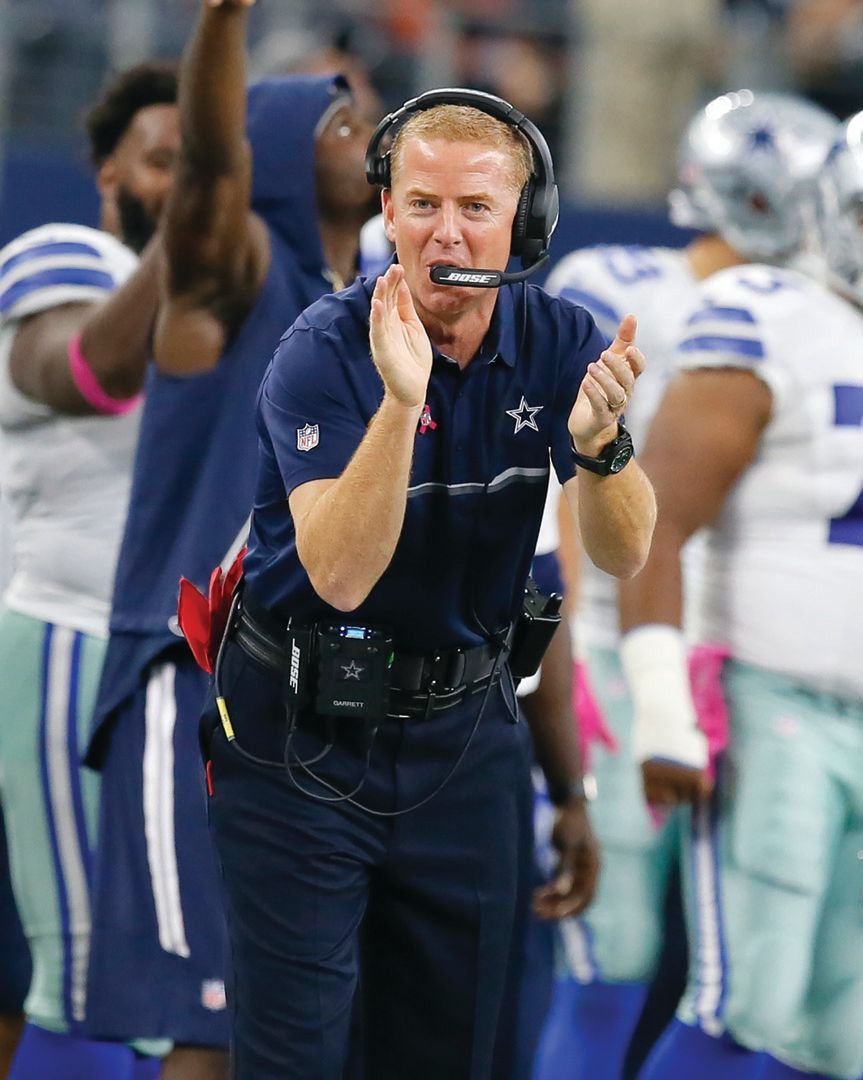
What was the secret sauce that made Tom Brady so effective?
I think he has underappreciated athletic ability, but what separates guys in my mind is the intangible stuff. Take any of the GOATs that you can imagine. Let’s start with Michael Jordan. As great as Jordan was physically, was he so much better than everybody else athletically? Weren’t there other guys who could run and jump and do some of the same things? To me, Jordan’s greatness comes from his mind, his will, his mental and physical toughness, his heart, his desire, and his competitiveness. And I think Brady has all those same traits, all of those qualities: his mentality, his heart, his will.
Were you surprised that Belichick did not get picked up?
Shocked. There were seven head coaching opportunities this year. This guy’s won six Super Bowls as a head coach, eight total. His track record as a head coach in New England is unmatched. I think he still has a desire to coach, and I think a lot of the owners are going to come to their senses and say, "Maybe some of these older guys can still coach," like Andy Reid in Kansas City.
Is there an explanation for why he was not picked up?
The explanation is probably that he’s in his 70s, and there’s a perception that he needs to take over the entire organization. And that probably threatens a lot of people. Is the owner willing to do that? Are the people around him who helped the owner make the decisions willing to bring that kind of person in? Maybe their jobs get threatened.
There’s a lot of anticipation in New England about Drake Maye as quarterback. Any observations?
I’m a fan of Drake Maye, and when I watched him on tape, I was impressed with many things he did physically, but in some ways, I felt he was a little immature. However, in talking to people who spent a lot of time with him during the draft process, they absolutely love him. I’m not saying he has Tom Brady or Troy Aikman traits, but a lot of people talk about him in that way.
Do you think the risks of playing football with CTE and other injuries have been reduced in any way?
CTE is a real thing, and we all know that. The game can be brutal and can have a lasting impact on those who play it for a long time, but the NFL has done an incredible job making it safer. A couple of years ago, you played 16 games in a season, then 17, and now 18, as well as flying to Europe, which are all contrary to the great strides they have made in making the game safer. The NFL has fallen prey to putting the almighty dollar first.
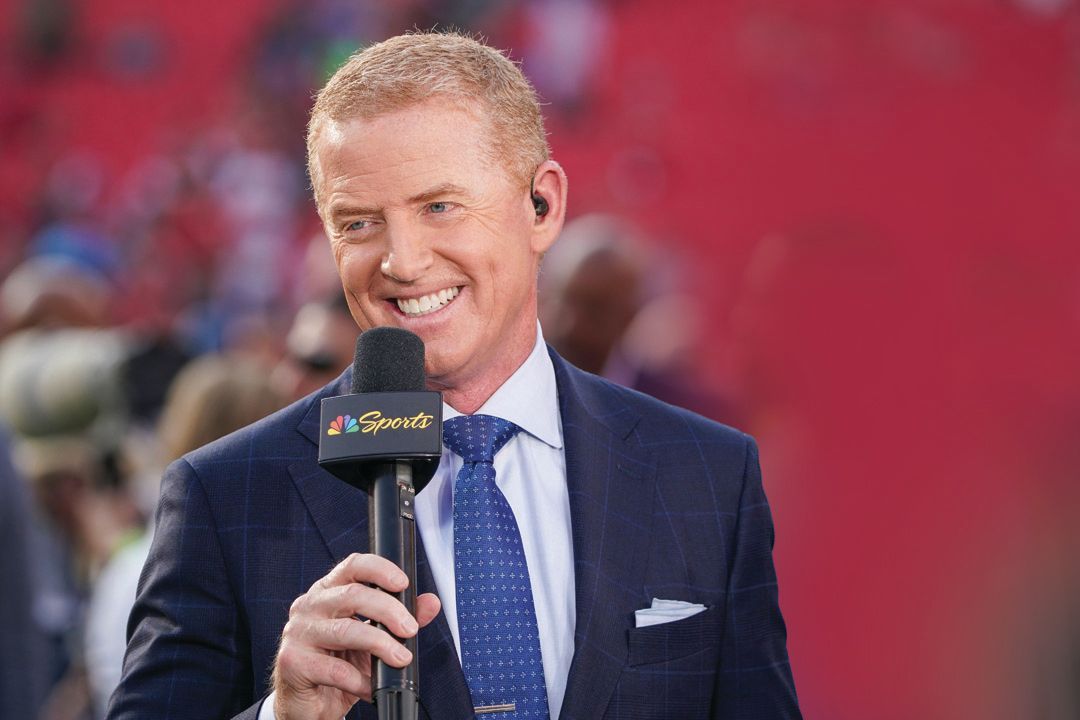
This is a career that still has a relatively short lifespan to it. What do you see happening to these players when their career is over?
The average career in the NFL is 2.3 seasons, so it’s not long. I always use Troy Aikman as an example. The player who’s the first player taken in the draft, plays 12 years, goes to seven Pro Bowls, wins three Super Bowls, but he retires at 34 years old. He’s got the rest of his life, and he’s been so identified with this his entire life. What does he do? Troy’s made an amazing transition to be a broadcaster, but you wake up in the morning, do you have a purpose to your day? And can you shake your identity as a great football player and channel all of the great qualities that you developed in becoming a great football player into something else? It’s not really a slam dunk for a lot of people. It’s hard to do. … That’s why we go back to education. I think it’s incumbent upon some of these colleges to make sure to try to remain true to their cause of developing them as students, as athletes, and as people.
Was broadcasting an easy transition for you?
At the end of my playing career, for the last four years, Fox used to have this opportunity for players to go over to NFL Europe for two weeks, and you could announce games. That was my first exposure to doing it. … When I was done playing, I decided to go into coaching instead. So it was kind of in the back of my mind. And when I decided I wasn’t going to coach, a good friend of mine, Fred Gaudelli, who was regarded as the best producer of football on television ever, said, “Hey, do you have any interest in this?” And he encouraged me to join NBC and go down and do USFL [United States Football League] games in Birmingham, Alabama, a couple of springs ago. … I did 10 games down there, and it was something I really liked doing.
You’ve coached a lot of guys, but who impressed you the most?
The first guy that came to my mind is Jason Witten. Jason Witten was not a "wow" physical player. He was probably an underappreciated physical athlete, bigger than everybody, faster and quicker than everybody thought, but I’ve never seen a guy demonstrate total dedication to a craft like he did. I coached him for 12 years, and every minute of every day, he was determined to do things the right way. If the definition of discipline is doing what you’re supposed to do, when you’re supposed to do it, exactly like it’s supposed to be done, and doing it that way every time—that’s Jason Witten.
Latest Stories
